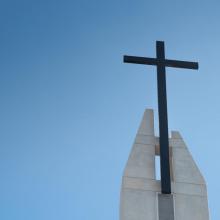jewish synagogues

Image via Thanate Rooprasert/Shutterstock.com
First came the mayors of New York, Chicago, and Seattle declaring their cities “sanctuaries”, and saying they will protect undocumented immigrants from President-elect Donald Trump’s plan to deport them.
Then thousands of students, professors, alumni, and others at elite universities, including Harvard, Yale, and Brown, signed petitions, asking their schools to protect undocumented students from any executive order.
Now, religious congregations, including churches and synagogues, are declaring themselves “sanctuaries” for immigrants fleeing deportation.
At a synagogue in Charleston, S.C., more than 20 years ago, teenager Rachel Nussbaum began wrapping tefillin — two black boxes attached to leather straps that Jewish men wear as they pray.
To the older Jewish men gathered for morning prayers, the sight of a woman decked out like a man at prayer was shocking. Many didn’t know what to make of Nussbaum’s brazen willingness to break with tradition.
Now 38, and a rabbi, Nussbaum leads The Kavana Cooperative, a growing Jewish prayer community in Seattle that has much in common with a synagogue but doesn’t call itself one.
Like the tefillin-wrapping teenage Nussbaum, Kavana prides itself on a reputation for doing Judaism its own way.
Seven years after Hurricane Katrina toppled a nearby floodwall and drowned their synagogue, and after a seven-year journey praying in hotel meeting rooms, then in rooms borrowed and rented from another congregation, the 100 or so families of Congregation Beth Israel are finally home.
The wandering congregation moved into their new synagogue in suburban Metairie on Aug. 26, three days before the Katrina anniversary and two days before Hurricane Isaac hit landfall in Louisiana.
With a short parade that included a New Orleans brass band, clergy and friends ceremonially carried their five sacred Torahs to their home in Beth Israel’s new ark.
There’s a passage from Hebrew Scripture from the Song of Solomon carved into the ark’s face: “Mighty waters cannot extinguish our love.”

